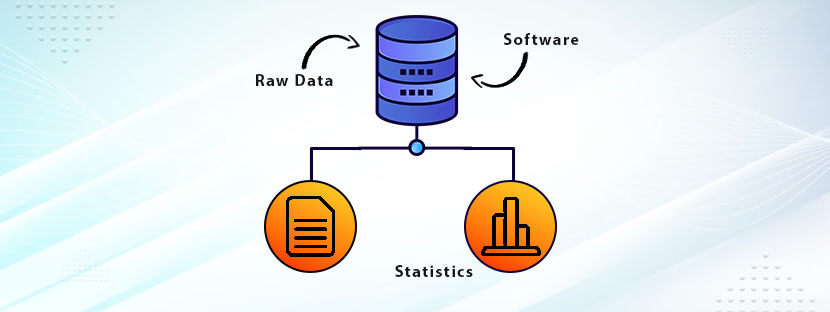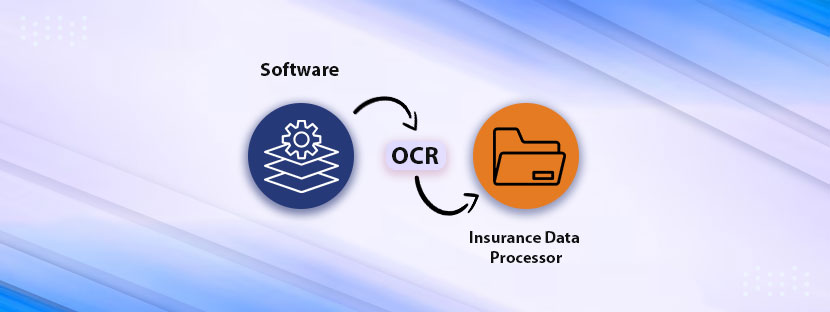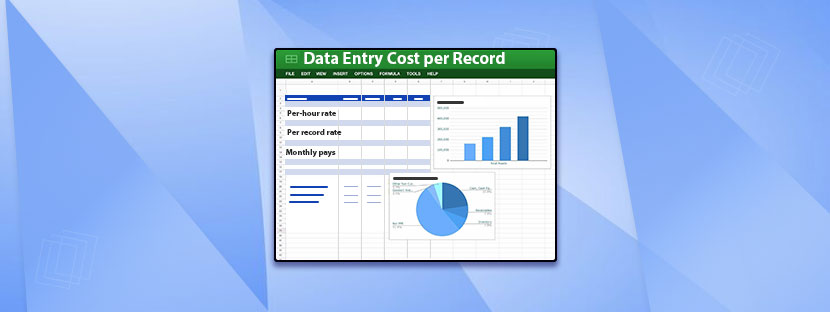In This Article
The pandemic has significantly increased remote work, creating a greater need for efficient data entry services. Recent studies show that over 80% of businesses have adopted remote data entry solutions to simplify operations. This article will analyze the rise of remote data entry services, their benefits and challenges, and future trends and cost-effectiveness associated with this new way of working. Get ready to embrace the growing popularity of remote data entry services in the post-pandemic era.
Workforce Movements Towards Remote Works
As we adapt to the new normal, it’s always vital to comprehend the impact of remote work on advancing data entry services. Besides, the transition to remote work has offered unique challenges that have significantly affected the demand for data entry services. In fact, one of the significant challenges is maintaining productivity while working remotely.
Working remotely comes with a collection of challenges that can definitely affect productivity. Subsequently, without a traditional office environment, employees may face distractions at home, such as home chores or family commitments. Besides, the absence of face-to-face interaction can lead to feelings of isolation and reduced motivation. These challenges can hamper the efficiency and productivity of data entry work.
However, the rise of remote data entry offers opportunities for increased productivity. Undeniably, with the flexibility to perform work from anywhere, employees can make a personalized work environment that fits their requirements and priorities. Concurrently, it can improve focus and attention, leading to higher productivity levels. Undeniably, remote work also eliminates commute times, giving employees more time to devote to their jobs.
Companies have executed various methods to address the challenges and optimize productivity in data entry services. For remote teams to remain connected and work together effectively, communication and collaboration tools are necessary. Regular check-ins and virtual meetings help maintain team cohesion and provide a platform to discuss challenges and share best practices. Additionally, companies have invested in training programs to provide employees with the skills and knowledge required to excel in remote data entry tasks.
Necessity of Data Management
In handling data, ensuring accuracy and security is obviously crucial. Surprisingly, accurate and up-to-date data is critical in making informed business decisions, while solid security measures are vital to safeguard sensitive data from unauthorized access or breach. Indeed, companies must carefully consider whether to outsource data management services or keep them in-house, considering cost, efficiency, and the level of control they need over their data. Undeniably, making the correct choice can significantly impact the success and efficiency of their operations.
Data Security and Accuracy
Ensuring the accuracy and security of information is our highest priority. We follow careful data management practices to keep a high level of accuracy. It is essential because precise data effortlessly permits an informed decision-making process and helps us avoid costly mistakes. To accomplish this, we have executed robust quality control standards, such as double-checking entries and performing regular audits.
Apart from accuracy, we understand the importance of data privacy. We take comprehensive standards to safeguard sensitive information and keep confidentiality. Our approach includes implementing secure storage systems, encryption protocols, and access controls. These measures confirm that data is protected from unauthorized access.
As we delve into the next section on ‘outsourcing vs. in-house,’ we must consider how our data accuracy and security practices align with various data entry service options.
Outsourcing Vs In-House
Advantages and Disadvantages of Outsourcing Efficient data management requires in-house data entry services. Let’s investigate three critical aspects to help you create an informed decision:
Considering these factors, it is vital for companies to carefully assess the benefits and disadvantages and select the method that best suits their data entry needs. As we move to the next section, it becomes clear that the rise of remote data entry highlights the importance of making informed decisions.
Increased Demand for Data Entry Services
Demand for data entry services has increased significantly during the pandemic. It can be attributed to the need for advanced skills and the growing remote work trend. As businesses have rapidly shifted to remote work setups, they have realized the importance of digitizing their data and streamlining their processes. As a result, demand for data entry services has increased to manage the flow of information that needs to be organized and entered into digital systems.
Increased skill requirements are one of the leading factors that propel this rise of remote data entry. As companies operate remotely, having accurate and up-to-date data readily available to employees has become crucial. Data entry services can play a critical function in assuring the precision and efficiency of data entry, enabling businesses to make informed decisions and operate smoothly.
Additionally, the rise of remote workforce has also contributed to the growing demand for data entry services. As companies migrated to remote work systems, they faced challenges managing and organizing their data, mainly when employees were in different locations. Outsourcing data entry services provides a cost-effective solution, authorizing companies to focus on their operations while ensuring the accuracy and accessibility of their data.
Remote Data Entry Benefits
Remote data entry offers businesses several benefits, including increased efficiency, lower costs, and improved data accuracy. Companies can simplify their operations and increase productivity by utilizing remote data entry. Here, we will discuss three essential benefits of remote data entry:
Remote Data Entry Implementation Challenges
Executing data entry services remotely gives several challenges for businesses. While there are many benefits to remote data entry tasks, companies must also address various hurdles to ensure a smooth transition. One of the critical challenges for the rise of remote data entry is the demand for secure data transmission and storage. With employees accessing and accessing sensitive information remotely, businesses must adopt strong security measures to protect data from unauthorized access or breaches. That may include implementing encryption technology, using two-factor authentication, and conducting regular security audits.
Another challenge is the potential need for more control and oversight over remote data entry processes. Unlike in-office processes, businesses may find it hard to effectively monitor and control the productivity and precision of remote data entry workers. To combat this, companies can implement remote monitoring tools and establish clear communication channels to provide ongoing support and feedback to remote workers. Regular performance appraisals can help identify and address any problems or training needs.
Furthermore, the availability and reliability of Internet connections can pose a challenge for remote data entry services. A stable and speedy internet connection is mandatory for efficient data entry operations. Businesses should ensure that their remote workers can access a reliable Internet connection. Then, they consider providing backup options in case of an outage.
Providing Data Security in Remote Operations
There are a few essential things to consider when maintaining data security in the rise of remote data entry. First, it is crucial to implement remote encryption protocols to defend sensitive data from unknown access. It assists in defending data integrity and privacy,
Second, taking adequate measures to prevent data breaches is equally essential. By proactively recognizing and responding to probable security threats, organizations can decrease the chance of unauthorized access to their data.
Finally, implementing authentication mechanisms for remote access can significantly improve data security. By verifying users’ identities, organizations can ensure that only authorized individuals can access sensitive information. It assists in preventing unauthorized entry and decreases the risk of data breaches.
Remote Encryption Protocols
We prioritize the usefulness of robust encryption protocols to confirm data security in the rise of remote data entry. Remote encryption technology protects sensitive data from unauthorized access and potential breaches. Here are three main reasons why remote encryption protocols are essential for maintaining data security:
Prevention of Data Breach
Data breach prevention is our top focus regarding the rise of remote data entry. We understand the importance of maintaining data accuracy and security to maintain our clients’ trust and protect sensitive information. To accomplish this, we have implemented strong security standards. Our procedures include strict access controls, ensuring only authorized personnel can access and modify data. We utilize robust encryption protocols to safeguard data during storage and transmission. Periodic security checks and audits are performed to identify and quickly remedy vulnerabilities. In addition, we provide extensive training to our workers on data security best practices. Then, we highlight the significance of privacy and proper procedures. By always prioritizing data breach prevention, we can confirm the integrity and safety of our client’s information in remote operations.
Remote Access Authentication
Providing data security is our top priority for remote operations. Robust authentication mechanisms play an essential role in maintaining remote access security. These measures verify sensitive data and the identity of individuals accessing systems, enhancing overall data security. We employ the following authentication mechanisms to achieve this:
Cost-Efficient Remote Data Entry Services
As companies adjust to the changing landscape in a post-pandemic world, it is essential to consider the cost-effectiveness of data entry services. Remote data entry can benefit companies by reducing costs associated with physical office space, equipment, and utilities as an impact of remote work. By using remote data entry technology, businesses can hire data entry professionals from anywhere in the world, developing their talent pool and potentially decreasing labor costs. Furthermore, data entry services eliminate the requirement for in-house training and onboarding, saving time and money.
Another benefit of the rise of remote data entry services is reducing errors and rework. With dedicated professionals handling the data entry process remotely, the potential for errors is significantly reduced. It allows businesses to avoid costly mistakes and the demand for time-consuming corrections.
Additionally, these data entry services provide flexibility and scalability for businesses. Based on their workload, companies can quickly scale up or down, eliminating the need to hire and train additional employees during peak periods or lay off workers during slow periods. It allows businesses to save costs by only paying for their needed remote data entry tasks.
In conclusion, these data entry services provide a cost-effective solution for businesses. They can do it by reducing overhead costs and errors and providing flexibility and scalability. As companies navigate the barriers of the post-pandemic era, adopting these types of data entry can be a strategic action. It can optimize efficiency and decrease operational expenses.
Moving on, we will explore future trends in the rise of remote data entry.
Remote Data Entry: Future Trends
Looking ahead, we anticipate increased use of AI (artificial intelligence) and ML (machine learning) to enhance the efficiency and precision of remote data entry processes. As we look to the future of data entry, we believe three trends will shape the remote data entry landscape:
Organizations must adapt and embrace the new normal of remote data entry services. The COVID-19 pandemic has significantly changed the work environment, forcing businesses to rethink their strategies and adopt remote work models. As we navigate this post-pandemic era, recognizing the benefits of these data entry services is crucial for companies to optimize their functions and propel growth.
Embracing the Change of Remote Data Entry
Embracing change is essential in today’s dynamic and uncertain world in the rise of remote data entry. These remote-type data entry services offer numerous advantages, including cost savings, improved productivity, and access to a global talent pool. By embracing this new normal, organizations can use these benefits to streamline their operations and achieve success.











